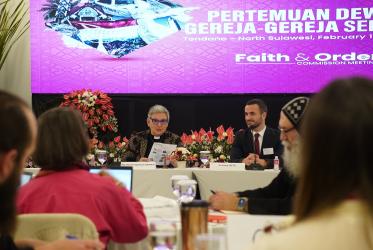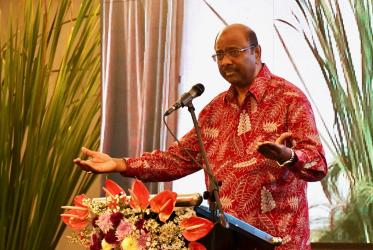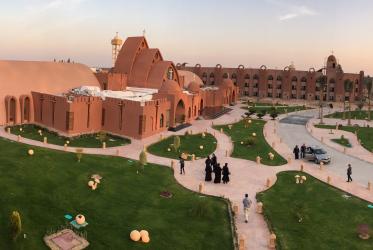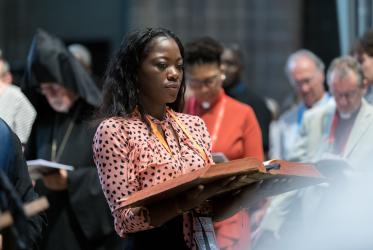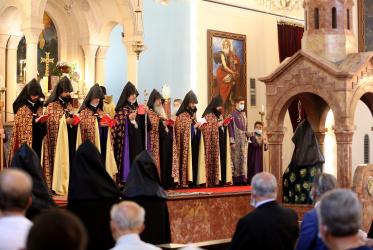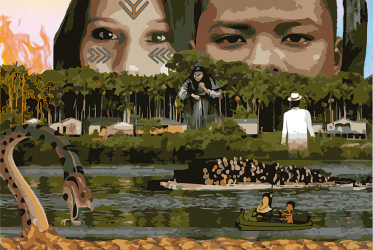Displaying 1 - 20 of 205
23 April 2024
WCC Commission on Faith and Order gathers with hope at the heart
03 February 2024
WCC will host consultation on evangelism and formation in Latin America
20 September 2023
Migrants in Argentina find listening ears and open hearts
04 November 2022
Promoting human dignity through art
06 September 2022
In pictures: Week of Prayer for Christian Unity
01 February 2021
WCC podcast deals with death and dying
15 December 2020

